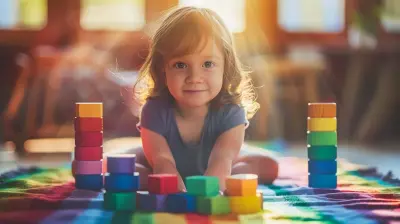The Impact of Screen Time on Childhood Development
2 August 2025
Let’s be real—screens are everywhere. From TV and tablets to smartphones and computers, our kids are growing up in a digital jungle. And as parents, guardians, or even just concerned adults, we've all wondered at some point—how much screen time is too much? What is it doing to their little minds and bodies?
In this article, we’re diving into the deep end of this very real concern. We'll talk about how screen time affects kids' brains, emotions, and behavior, both positively and negatively. But don’t worry, this won’t be a guilt trip. Instead, it’s a motivational guide to help you make smart, realistic choices about the role screens should play in your child’s life.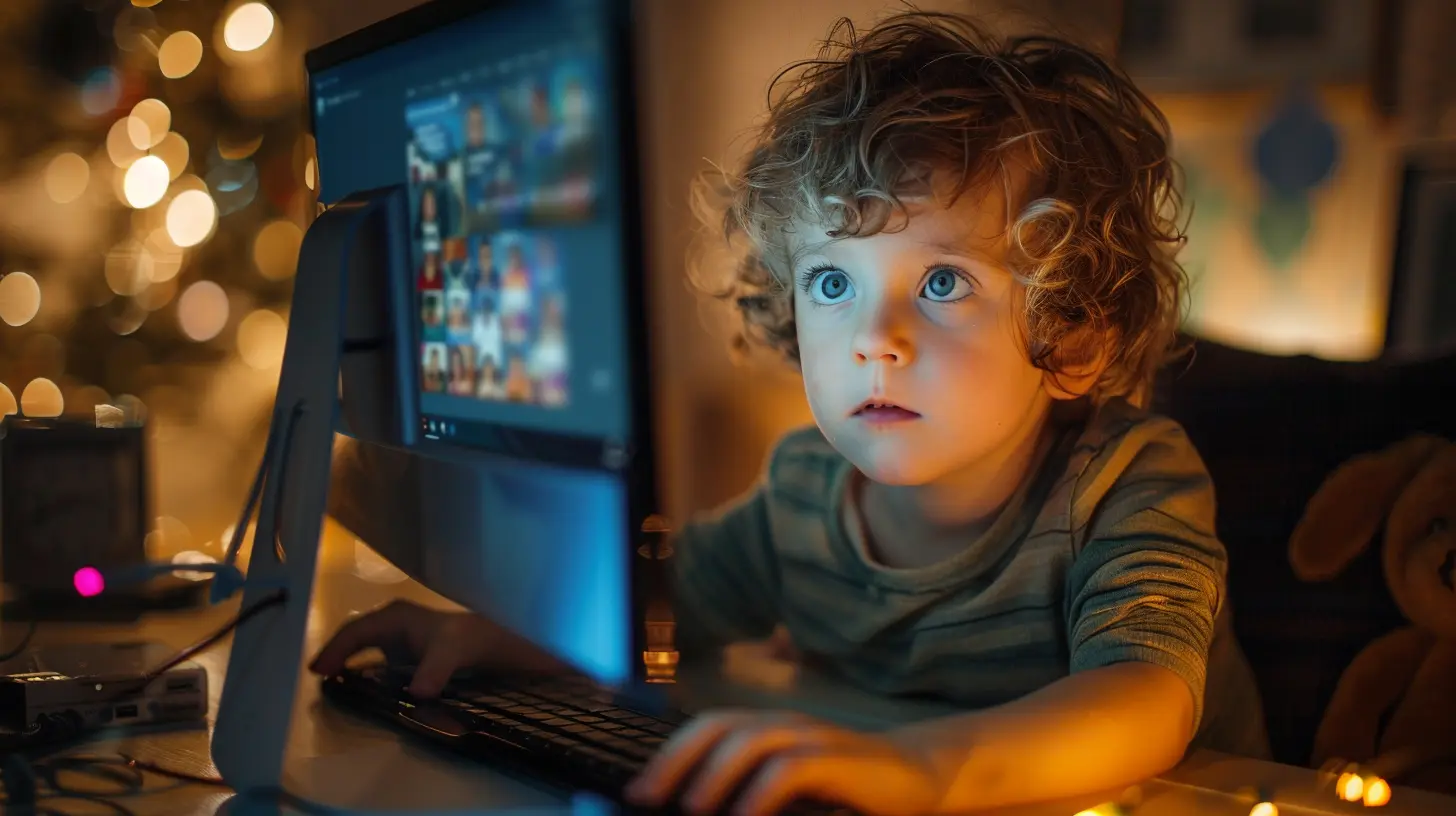
Why Screen Time for Kids Is a Hot Topic
Let’s start by getting something straight: screens aren’t “bad.” They’re just tools. But like any tool—whether it's a hammer or a kitchen knife—it depends on how we use them.Over the past decade, screens have become a constant presence in our homes, schools, and even restaurants. And that’s not necessarily a bad thing. Kids can learn to code, explore space via documentaries, or even talk to Grandma across the world—all thanks to screens.
But here’s the kicker: too much of anything can tip the balance. And in the case of children, whose brains are still under heavy construction, the effect of screen time can be a game-changer.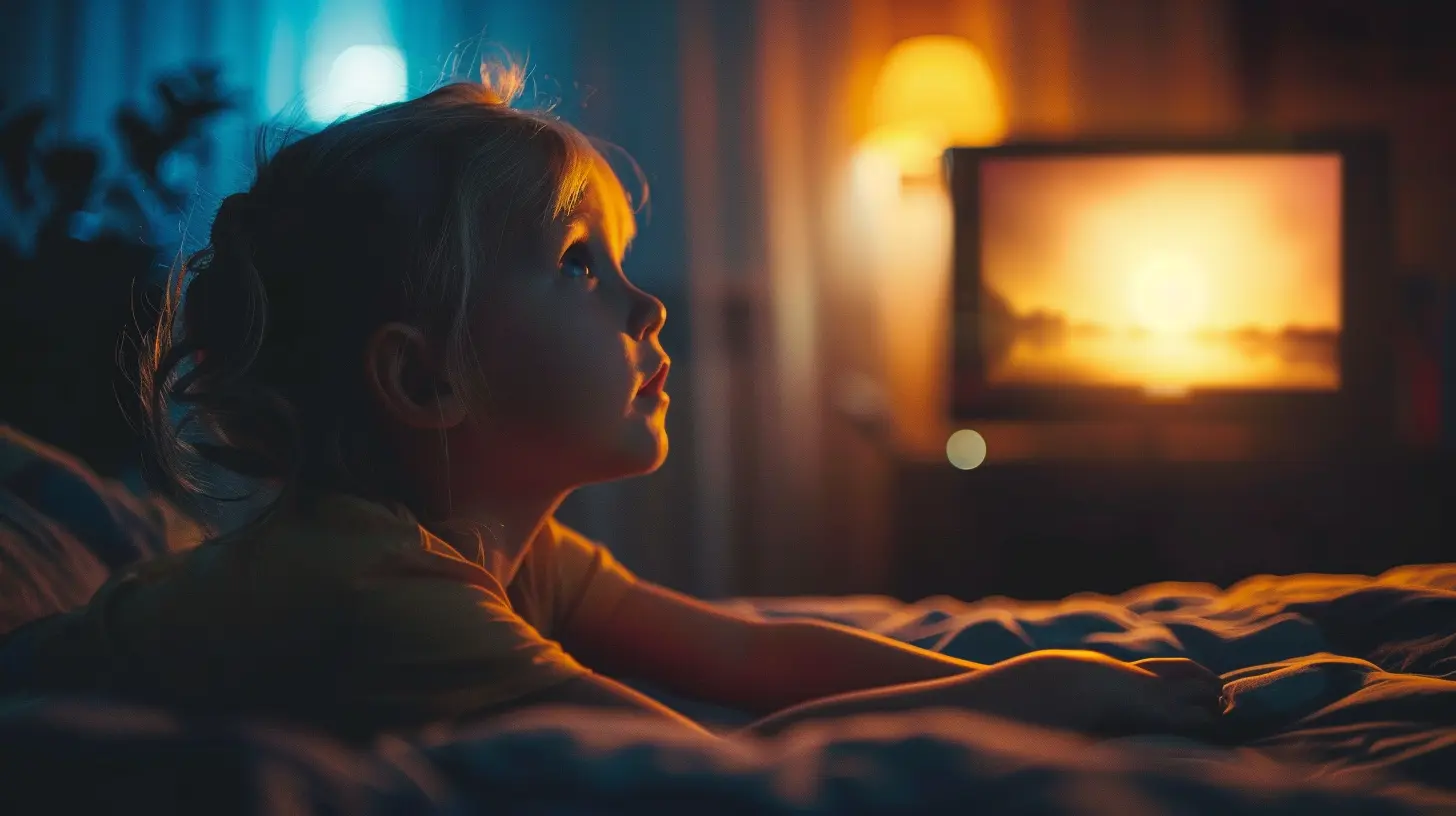
How Much Screen Time Is Too Much?
According to the American Academy of Pediatrics, kids aged 2 to 5 should have no more than one hour of quality screen time per day. For older children, a specific limit isn’t set, but the emphasis is on balance—making sure screen time doesn’t steal time away from sleep, exercise, homework, or face-to-face interactions.But let’s face it. That’s easier said than done, right?
We're all busy. Sometimes letting your toddler watch a cartoon while you cook dinner or do emails is a huge help. And that's OK. The magic word here is moderation.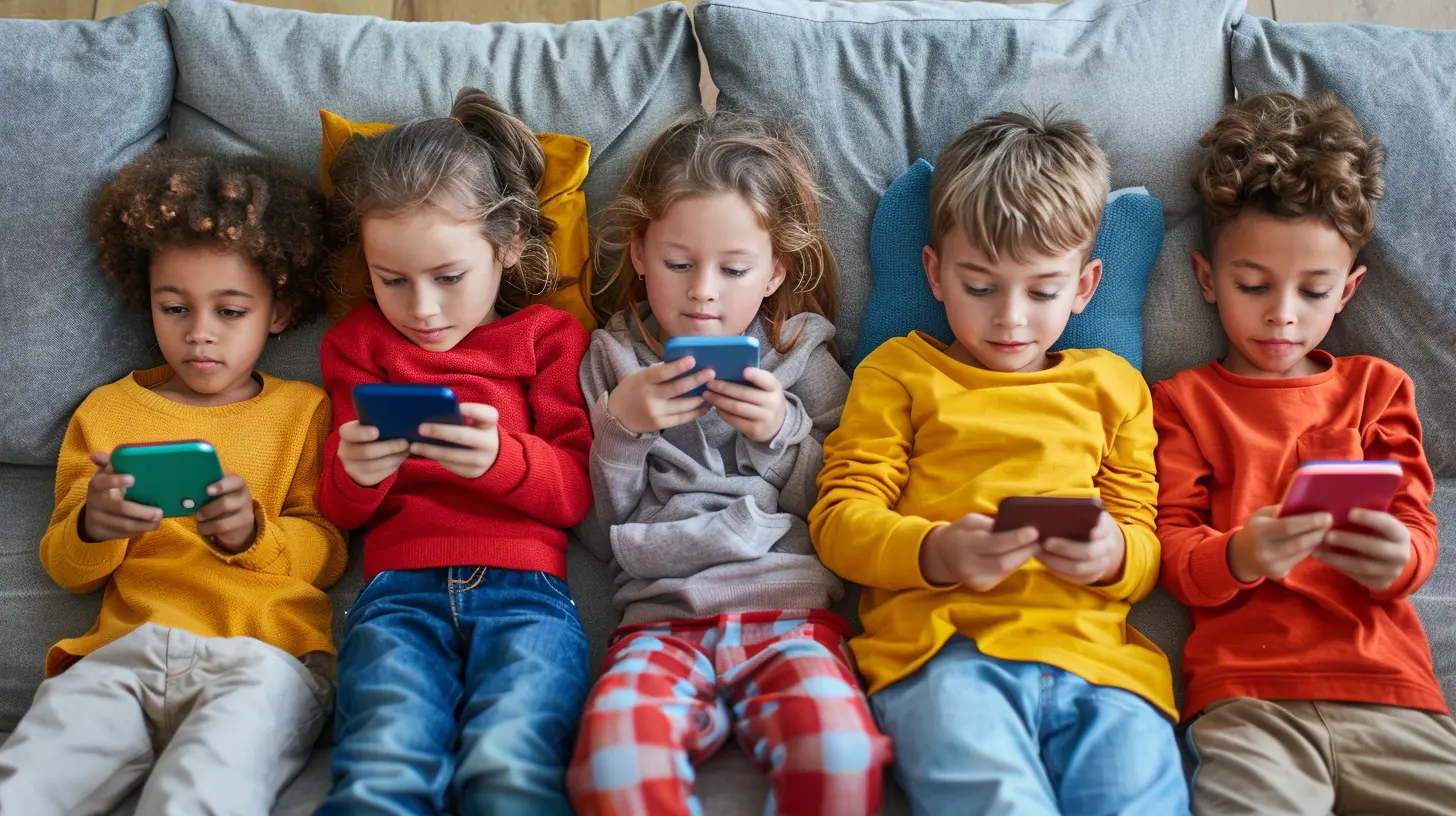
The Cognitive Impact: Screens and Brain Development
📱 Digital Babysitters and Attention Span
Ever noticed how some kids jump from app to app like they're flipping through a photo album on fast-forward?That’s not a coincidence.
Too much exposure to fast-paced screen content can affect a child's attention span. Think of the brain like silly putty—it starts soft and shapeable. Constant stimulation from rapid screen changes can rewire neural pathways, making it harder for kids to focus, be still, or enjoy "boring" real-world activities like reading or playing with toys.
That’s why some experts now refer to screens as “digital candy.” Tasty, tempting, and—if not managed—potentially addictive.
🧠 Screens vs. Imagination
Remember the magic of playing with cardboard boxes or pretending the couch was a pirate ship? Those games stretched our imagination muscles like an Olympic warm-up.When kids spend hours consuming screen content, especially passive content like TV shows or YouTube videos, there's simply less room for creative brain play. Instead of creating, they're consuming.
And this “imagination shrinkage” might not seem like a big deal today, but it can seriously affect problem-solving skills, storytelling, and even emotional intelligence later on.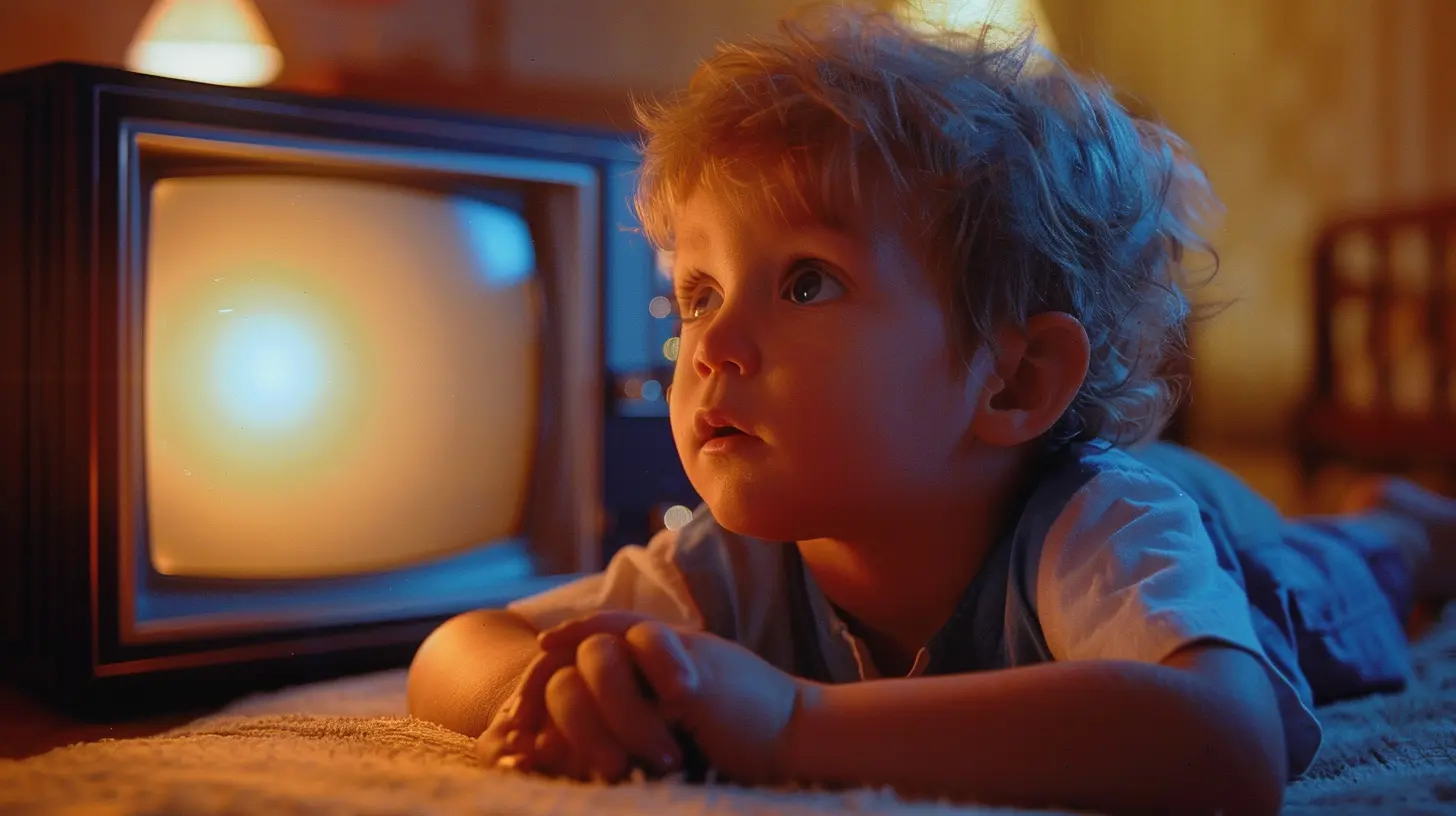
Emotional and Social Development: The Good, The Bad, and The Awkward
😊 The Bright Side
Let’s not forget the positives. Educational shows and learning apps can teach empathy, social skills, and even kindness. Video chats with family members can strengthen bonds. And sometimes, interactive games with peers can help kids work together and build teamwork.When used wisely, screens can open doors—not just distract.
😟 But There’s a Dark Side Too
On the flip side, too much screen time—especially when unsupervised—can lead to emotional withdrawal, irritability, and even anxiety. Some studies link excessive screen time to depression in adolescents.Why? Because screens can become emotional crutches. Instead of dealing with frustration or boredom, a child may reach for a device to escape.
Worse, social media and online gaming (especially for older kids) can turn into breeding grounds for comparison, bullying, or feeling left out.
Think of it like junk food for the soul—it fills you up, but it doesn’t nourish.
Behavioral Changes: What Parents Are Noticing
You tell your kid it's time to turn off the tablet, and suddenly they're melting down like an ice cream cone in July. Sound familiar?Excessive screen time has been linked to behavioral issues like aggression, sleep problems, and impulsivity.
Why? Because screens can overstimulate kids. The dopamine hit from games or videos is like a mini-adrenaline shot. Take it away suddenly, and withdrawal symptoms (yes, that’s a thing) kick in—resulting in tantrums, defiance, or emotional outbursts.
Don’t worry though. All this is reversible—with the right balance and strategies.
Physical Health: Eyes, Sleep & Sedentary Lifestyles
👀 Digital Eye Strain
Have your kids started rubbing their eyes, complaining of headaches, or squinting more than usual?Blue light from screens can cause digital eye strain, which is more common than you think. It can lead to dry eyes, blurred vision, and long-term sight issues. Not to mention, it messes with their sleep-wake cycle.
💤 Sleep Disruption
Blue light messes with melatonin—the sleep hormone. So that late-night YouTube binge could make it harder for your child to fall and stay asleep.Lack of quality sleep has a domino effect: poor focus, bad mood, and even weakened immunity.
🕺 Movement Matters
Let’s not forget—the more time kids spend sitting, the less time they spend moving. Regular physical activity is crucial for muscle development, coordination, and even emotional regulation.So, turning screen time into a more active, mindful experience becomes a must.
Finding Balance: A Screen Time Survival Guide
No need to go full-on screen-free monk here. The goal is balance—not elimination.🎯 Set Boundaries
Create a simple daily screen schedule. Maybe an hour after school, or only after chores and homework are done. When kids know what to expect, they’re more likely to cooperate.🧩 Encourage “Boredom”
Yes, boredom is a gift. It’s the seedbed for creativity. When kids are left to their own mind, they invent games, build forts, or draw masterpieces you’ll proudly stick on the fridge.Let them get bored. Then watch the magic unfold.
👨👩👧👦 Be a Role Model
Kids are watching us too. If we’re always glued to our phones, it sends the message that screens come first. Try putting your phone down during meals, bedtime, or playtime. Connect with eye contact—not WiFi.📺 Choose High-Quality Content
Not all screen time is created equal. Educational content, creative games, and interactive activities are way better than passive video consumption. Look for age-appropriate, enriching programs and apps.🧘♀️ Screen-Free Zones
Designate certain areas—like bedrooms and dining tables—as screen-free. This not only encourages better sleep and eating habits but also helps reconnect families without distractions.Motivational Takeaway: Progress, Not Perfection
If you're feeling overwhelmed by all this—take a breath. You're not failing. You're just learning, evolving, and trying to give your child the best shot at a healthy developmental path. And that’s more than enough.The goal isn’t to banish screens forever. It’s to help your kids use them in ways that lift them up, not drag them down.
A good analogy? Think of screens like sugar. Okay in moderation, unhealthy in excess, and best when balanced with healthier "ingredients" like books, nature play, and face-to-face giggles.
So, go ahead—encourage playdates, nature walks, board games, and bedtime stories. Give screens their time without letting them steal all the time.
Your child's brain will thank you later.
Final Thoughts
The impact of screen time on childhood development is real—but it’s not all doom and gloom. With a thoughtful approach, plenty of awareness, and a sprinkle of intentionality, we can strike that golden balance.Let this be your reminder: You’re not just raising a child. You’re shaping a future thinker, creator, and leader. And that’s one screen worth watching.
all images in this post were generated using AI tools
Category:
Child DevelopmentAuthor:

Alexandra Butler
Discussion
rate this article
1 comments
Paula Hudson
Great article! It's fascinating to see how screen time shapes childhood development. Striking a balance is so important. I love the tips provided for parents—it's all about making mindful choices to support our little ones' growth. Thank you for sharing!
August 8, 2025 at 2:23 AM

Alexandra Butler
Thank you for your kind words! I'm glad you found the tips helpful—mindful choices are key to supporting healthy development.


